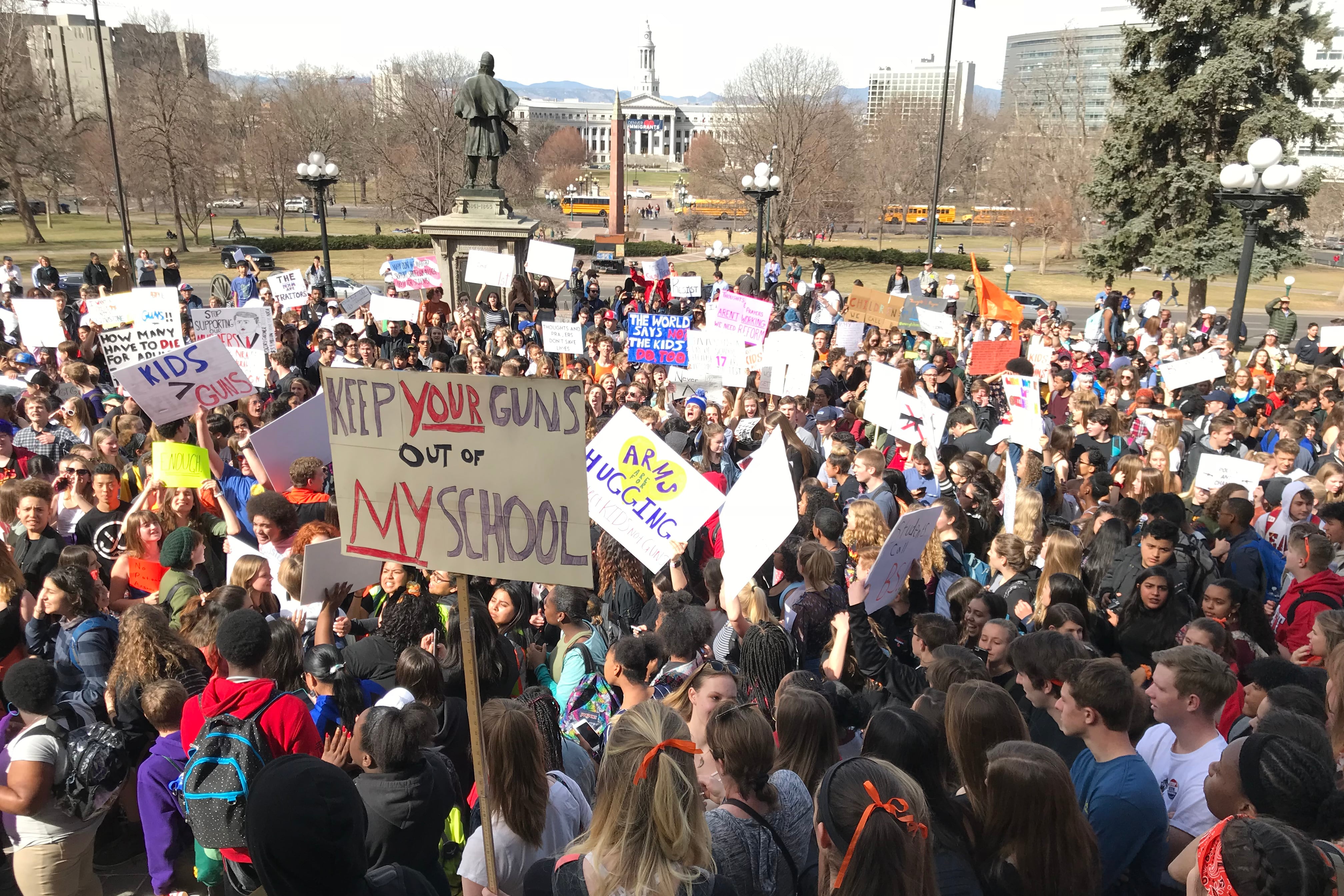Sign up for Chalkbeat Colorado’s free daily newsletter to get the latest reporting from us, plus curated news from other Colorado outlets, delivered to your inbox.
In 2023, Colorado added teachers to the list of people who can request that someone’s guns be temporarily confiscated under the state’s “red flag” law. But so far, not many teachers have used it, state officials and experts said.
“Teachers don’t know about it,” said Colorado Attorney General Phil Weiser, who pushed for the law.
A new training course being offered by Weiser’s office aims to change that, at a time when school safety is on the minds of many educators. On Sept. 10, a 16-year-old student at Evergreen High School shot and wounded two classmates before taking his own life.
“Obviously the events of Evergreen are top of mind today,” Weiser said. “But it’s sadly one painful story after another that schools and schoolkids have seen too much gun violence.
“When young people are struggling [or] contemplating suicide and make statements like, ‘I know where my dad keeps the gun’ or ‘I have access to a gun and I’m going to take my life,’ that’s a call to action. It’s important we use all the tools we can to prevent gun violence.”
Gun violence is the leading cause of death among youth. In 2023, 21% of Colorado middle school students reported that they could get a loaded gun in less than an hour without adult permission, according to the results of the statewide Healthy Kids Colorado survey.
The training, called the ERPO Curriculum for Educators, consists of two 30-minute virtual sessions. The first session goes over the basics of Extreme Risk Protection Orders, or ERPOs.
ERPOs allow law enforcement to confiscate a person’s firearms for up to a year if a judge determines that the person poses a danger to themselves or others. The second training session provides step-by-step instructions on how to petition the court for such an order. In addition to educators, a person’s family or household members, law enforcement officers, medical and mental health providers, and district attorneys can petition for an ERPO.
There is one version of the training for K-12 educators and another for college educators. In more than two years, college educators have filed just two petitions, according to the attorney general’s office. It’s not clear how many K-12 educators have used the law because petitions involving minors under age 18 are sealed by the courts, the office said.
Chris Knoepke, the director of strategy for the Firearm Injury Prevention Initiative at the University of Colorado School of Medicine, has tracked the use of the state’s red flag law. Anecdotally, he said it’s not used much with teenagers because educators, police officers, and parents often intervene in other ways, such as ensuring that guns in the home are locked up or by criminally charging a teenager with illegal possession.
But Knoepke still sees value in training educators on how to petition for an ERPO.
“The message for them is, ‘If you become worried about a student, there’s lots of things you can do, including this red flag law,’” he said. “The logic, as it stands, is that more nets catch more fish.”
In the first five years of Colorado’s law, which went into effect in 2020, a little more than 700 petitions were filed and nearly 500 were granted, at least on an emergency basis, Knoepke said. However, not all of those petitions resulted in guns being confiscated for a full year.
It’s against the law for anyone under the age of 18 to own a gun in Colorado, and state lawmakers recently raised the age to buy one from 18 to 21. But Weiser said there’s a difference between legally owning a gun and practically owning one. And an ERPO can move quicker than a criminal case, he said; the court must hold an initial hearing on a petition within a day.
“Lots of people end up in possession of a firearm for a range of reasons: It was given to them. They bought it illegally,” Weiser said. “All of those situations can be addressed by a red flag order.”
The ERPO training is free for educators and counts for continuing education credit.
Melanie Asmar is the bureau chief for Chalkbeat Colorado. Contact Melanie at masmar@chalkbeat.org.






